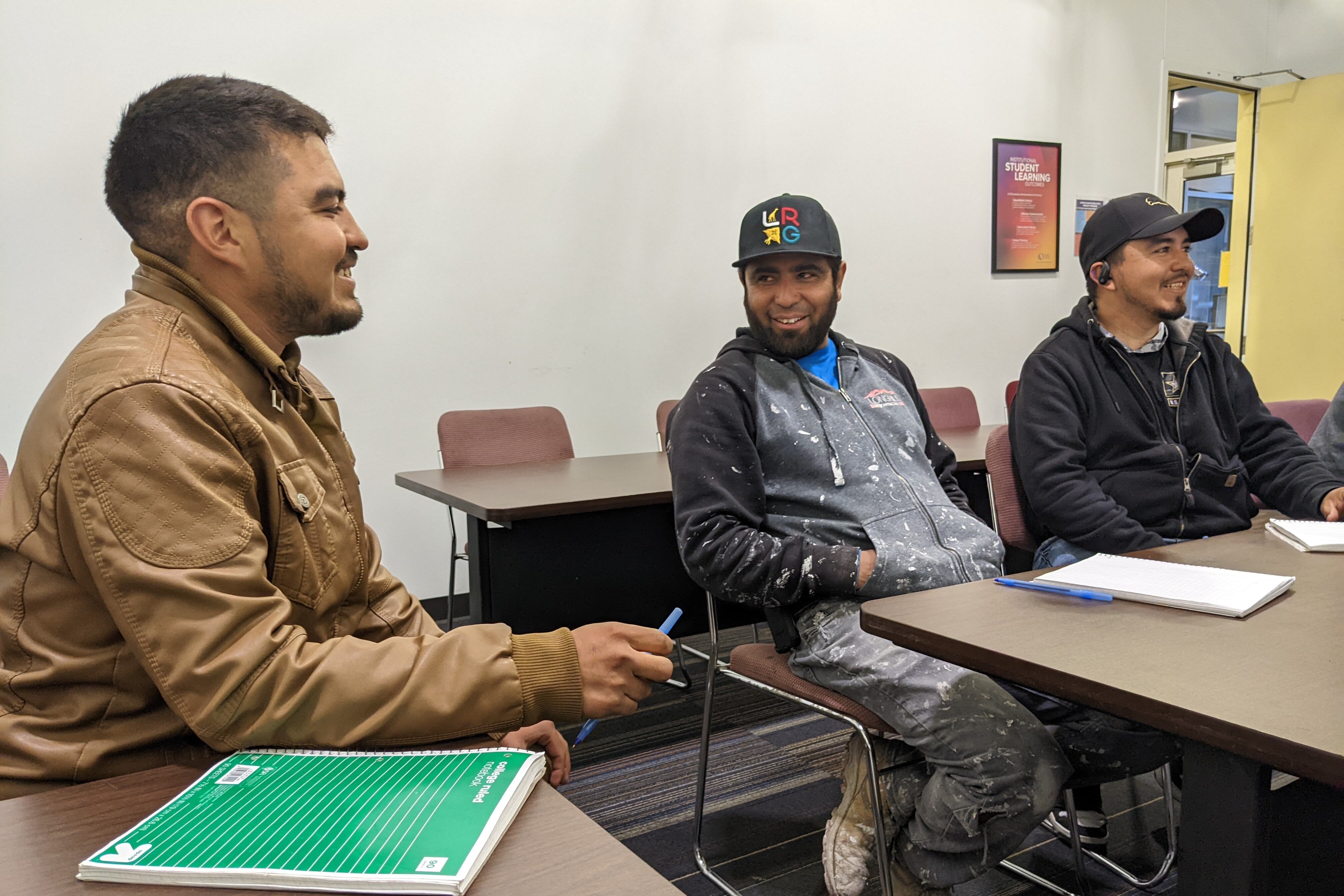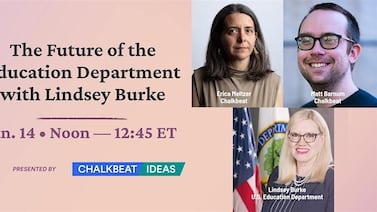Colorado would boost adult high school diploma programs and also ensure students learn digital literacy skills under two bipartisan bills in the state legislature.
Both bills would meet critical needs for Coloradans and also for the state — to produce more educated workers and to train more people for jobs that have been stubbornly hard to fill. Historically, Colorado has ranked at the bottom among states in funding adult education.
About 300,000 Colorado adults lack a high school diploma, according to the Colorado Adult Education Coalition. The state spends about $7 annually per eligible adult for adult education — tied for sixth-lowest among states, according to an analysis by ProPublica.
State Sen. Rachel Zenzinger, an Arvada Democrat co-sponsoring Senate Bill 7, wants all adults in Colorado “to be able to have the educational attainment that they need in order to be full citizens in the United States and in Colorado.”
Her bill would triple state spending on adult education programs to $3 million a year. It would make digital literacy a requirement in those programs. The bill also would allow colleges to award high school diplomas to adults.
The bill is co-sponsored by state Sen Barbara Kirkmeyer, a Weld County Republican; and state Reps. Cathy Kipp, a Fort Collins Democrat, and Marc Catlin, a Montrose Republican.
Another bill, Senate Bill 3, would spend $2 million a year to create a high school for adults to pay for courses, child care, and transportation. The bill is sponsored by state Sens. Janet Buckner, an Aurora Democrat; Bob Gardner, a Colorado Springs Republican; and state Rep. Mike Weissman, an Aurora Democrat.
The bills would significantly increase state investment in adult high school programs that advocates say will reach Coloradans who have the greatest difficulty finding good-paying jobs. On average, adults without a high school diploma earn about $32,500 a year, according to the Bureau of Labor Statistics.
Advocates and civic and business leaders say diplomas and training will steer those adults toward in-demand jobs.
Bills would expand adult education, but not reach all
Colorado’s adult education system is spread out among colleges, school districts, and nonprofits and teaches courses required for high school graduation and also subjects ranging from basic language to college and career skills.
Some charge for classes or exams. Students who never made it past elementary school may not be ready to jump into high school courses. Because limited education diminishes their earning capacity, these students might struggle even more than other adult students do to pay for child care and transportation, and to take time off work to learn.
Students who didn’t finish high school have the option of passing a test to earn a high school equivalency diploma — generally accepted by colleges and employers — or taking the courses they would have taken had they stayed in school and getting a fuller education.
The extra $2 million in Senate Bill 7 would help adult programs but is not enough for the thousands of adults needing an education, Zenzinger said.
Colorado provides less than $1,000 annually per adult enrolled in state programs, Zenzinger said. That figure is augmented by grants and other assistance. In comparison, the state spends about $10,000 annually on educating each high school student.
About 40% of eligible adults have less than a ninth grade education, Zenzinger said. That includes Coloradans who never graduated and immigrants and refugees who didn’t get a full education in their country. All need more support to finish high school, advocates say.
Colorado spent about $5 million total in federal relief funds for adult education in 2021 and 2022, Zenzinger said. That one-time money has run out.
Proposals would expand options for adults
Both bills will provide more programs for adults.
Senate Bill 7 would smooth the path to a diploma. Currently, colleges, which provide about a third of all adult programs, aren’t allowed to award diplomas. Instead, they must partner with a school district.
During public testimony, college leaders said partnerships expire or leadership changes, forcing schools to educate districts on the need.
Dwenna Holden, Colorado Mountain College English language program director, said colleges can provide a more consistent experience for adult high school students if they have more authority.
“This is streamlining the process for students and allows them to keep all their records in one place,” Holden said.
Colleges, nonprofits, and districts currently offer options for students, including night and weekend programs. Those might include in person, hybrid, or virtual diploma programs.
Senate Bill 3 would offer adults an alternate, more targeted service with an experience similar to a traditional high school.
The program is modeled after Goodwill’s Excel Center in Indiana, which offers an accelerated diploma course with college-level training, said Sarah Thomas, Goodwill’s national director of business development and network advancement. Goodwill operates the program in six states and Washington, D.C.
The program would allow the Colorado Department of Education to partner with a nonprofit such as Goodwill and enroll up to 400 students a year. It’s unclear where that school would be located. If successful, the program could expand, Buckner and Gardner said during a Wednesday Senate Education Committee hearing on the proposal.
“This is a way to get people back on track,” Buckner said.
Digital literacy skills are necessary to get jobs
Senate Bill 7 would require diploma programs across the state to teach digital literacy skills.
Many students are missing those skills, said Jocelyne Bisimwa, 32, lead adult education instructor at Spring Institute. It helps immigrants gain English language and digital literacy skills, as well as diplomas.
Bisimwa said when she moved from Uganda, she knew how to use email but couldn’t do much else on a computer. The Spring Institute connected her to classes to become a paraprofessional. She now teaches fellow immigrants.
Inability to send emails keeps many from finding jobs or furthering their education, she said. Students are also held back by unfamiliarity with other types of technology, she said.
Bisimwa said offering digital literacy skills to adults will help them unlock what Colorado has to offer.
“It’s going to change a lot of people’s lives,” she said.
Jason Gonzales is a reporter covering higher education and the Colorado legislature. Chalkbeat Colorado partners with Open Campus on higher education coverage. Contact Jason at jgonzales@chalkbeat.org.







